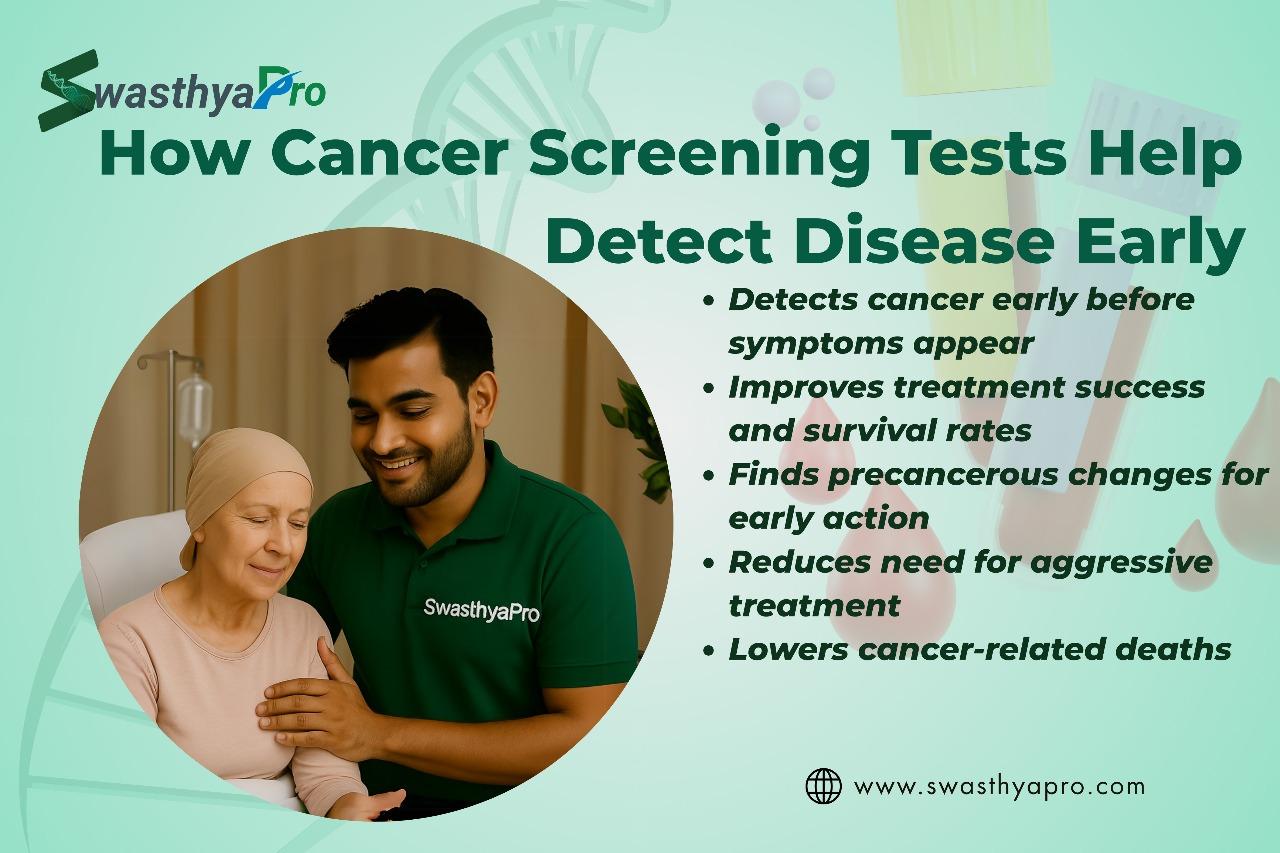Cancer screening test myths: what most people get wrong about early detection

A cancer screening test can save lives — but only if people actually go for it. Sadly, many don’t. Why? Because of myths, fears, and confusion. Misinformation keeps people away from the very thing that could catch cancer early, while it’s still treatable.
Let’s bust the most common myths about the cancer screening test — and replace them with facts that can truly make a difference.
Myth 1: “If I don’t have symptoms, I don’t need a cancer screening test.”
This is one of the most dangerous beliefs. A cancer screening test is not for people with symptoms. It’s for healthy people — to detect cancer before symptoms ever appear. Most early-stage cancers don’t cause pain or noticeable signs.
By the time symptoms show up, the disease may already be advanced. Getting a cancer screening test on schedule increases the chances of catching it early — when it's easier and less expensive to treat.
Myth 2: “The cancer screening test is painful.”
Most cancer screening tests are either completely painless or cause only minor, brief discomfort. A blood test for PSA (prostate), a mammogram, a Pap smear — all take just a few minutes and are safe.
Even a colonoscopy, which some fear, is done under sedation. The preparation might feel inconvenient, but the test itself doesn’t hurt. The fear of pain should never stop someone from getting a cancer screening test.
Myth 3: “It’s better not to know.”
Some people avoid a cancer screening test because they’re afraid of what might be found. But not knowing doesn’t protect you. It delays action. The longer cancer goes undetected, the harder it becomes to treat.
Early detection doesn’t just improve survival rates — it often means fewer treatments, lower costs, and better outcomes. A cancer screening test gives you power over your health, not fear.
Myth 4: “Only older people need a cancer screening test.”
While age increases the risk of cancer, it’s not the only factor. Family history, lifestyle, habits (like smoking), and even environmental exposure play a role.
Many cancer screening tests are now recommended for people in their 30s and 40s — especially for breast, cervical, and colon cancers. Some screenings (like Pap smears) even begin in your 20s. It’s not about age — it’s about risk and prevention.
Myth 5: “A negative result means I’m 100% safe.”
A cancer screening test is incredibly helpful, but no test is perfect. Some cancers develop between screening intervals, and others may not be detected depending on their location or stage.
That’s why regular testing matters. One clear result doesn’t mean you can ignore future checkups. A cancer screening test is a part of your ongoing health monitoring — not a one-time fix.
Myth 6: “Screening tests are too expensive.”
Many people believe a cancer screening test will drain their bank account. But that’s not true anymore. In India and many other countries, basic cancer screenings are available at affordable rates — some even free under government programs or workplace wellness plans.
Many diagnostic labs offer packages for breast, cervical, prostate, and colon screenings at accessible prices. Compared to the cost of late-stage treatment, a cancer screening test is a small investment with a huge return.
Myth 7: “Cancer doesn’t run in my family, so I don’t need screening.”
Most cancers are not hereditary. In fact, only 5–10% of cancers are linked to inherited genes. That means even if no one in your family had cancer, you could still be at risk.
A cancer screening test is recommended based on your age, habits, and lifestyle — not just family history. Don’t wait for a family warning sign to get checked.
Final thoughts
The myths around the cancer screening test have kept too many people in the dark. But knowledge is power. The truth is simple: Screening saves lives. It’s safe, effective, and often easier than you expect.
Don’t let fear, myths, or misinformation hold you back. Talk to your doctor. Ask about the right cancer screening test for your age and risk level. Then book it — and take control of your health journey.
- Art
- Causes
- Best Offers
- Crafts
- Dance
- Drinks
- Film
- Fitness
- Food
- Oyunlar
- Festival
- Gardening
- Health
- Home
- Literature
- Music
- Networking
- Other
- Party
- Religion
- Shopping
- Sports
- Theater
- Wellness



